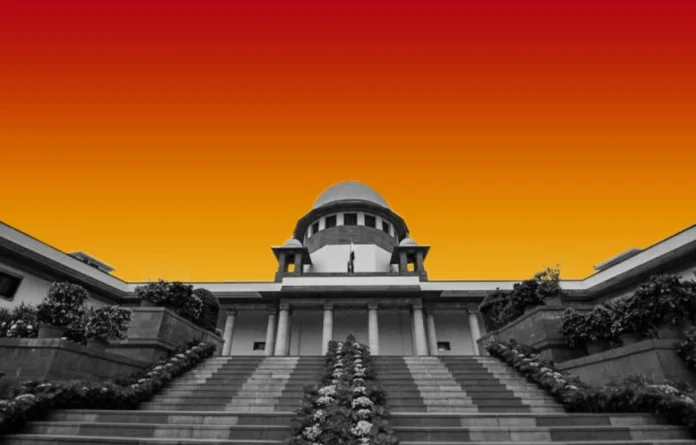The Election Commission of India (ECI) has apprised the Supreme Court that Aadhaar cards, voter ID cards and ration cards could not be accepted as proof of eligibility to vote in the ongoing Special Intensive Revision (SIR) of electoral rolls in Bihar.
The Commission said this in a counter-affidavit filed before the Apex Court on July 21, in response to a batch of petitions challenging the Special Intensive Revision (SIR) of electoral rolls in Bihar.
As per the affidavit, Aadhaar card was not included in the list of 11 documents specified by ECI in its June 24 notification as acceptable documents to verify citizenship, since it did not help in screening the eligibility under Article 326 of the Constitution.
Aadhaar could establish the identity of a person, but not citizenship, it pointed out, noting that Aadhaar cards issued after January 2024 carried a statutory disclaimer that reads ‘Aadhaar is not proof of citizenship’.
The Commission relied on several High Court verdicts to prove its point, including Rani Mistri vs State of West Bengal, wherein the Calcutta High Court held that Aadhaar Card by itself shall not confer any right of or be proof of, citizenship or domicile in respect of the holder thereto.
Acknowledging that Aadhaar numbers were being collected in Bihar during the SIR process, the ECI said it was being done only for the limited purpose of identity verification provided under Section 23(4) of the Representation of People Act, 1950, through an optional field given in the Enumeration Form.
Regarding ration cards, the affidavit said that while they were issued by state authorities under the National Food Security Act, their reliability was undermined due to the volume of fake and temporary cards in circulation. As a result, ration cards have not been included in the list of 11 documents to be relied upon for screening electoral eligibility, it added.
Filed by Deputy Election Commissioner Sanjay Kumar, the affidavit said that both Aadhaar and ration cards could be used only as supplementary documents and not as standalone proof for inclusion in the electoral roll.
Regarding Electoral Photo Identity Card (EPIC) or voter ID cards, the Commission said they were prepared on the basis of electoral rolls and were merely reflective of prior entries.
The conceptual and procedural integrity of SIR, which was a de novo revision process under Rule 21(3) of the Representation of the People Act, 1950, would stand undermined if voter ID cards were used to validate entries.
Being a by-product of an earlier electoral roll, EPICs could not substitute the verification process mandated for fresh preparation. Relying solely on voter ID cards for inclusion or automatic continuance would be contrary to both the scheme and purpose of a fresh revision exercise.
Earlier on July 10, the Apex Court directed the Commission to consider accepting the Aadhaar card, ration card and the voter ID card as acceptable citizenship documents for SIR of electoral rolls in Bihar.
The partial working days Bench of Justice Sudhanshu Dhulia and Justice Joymalya Bagchi further recorded the ECI’s submission that the list of 11 documents specified in its June 24 notification as acceptable documents to verify citizenship was an illustrative list, and not exhaustive.
The Apex Court held that since the list was not exhaustive, it would be in the interest of justice that the ECI considered the Aadhaar card, Electoral Photo Identity Card issued by the Election Commission and the ration card as acceptable citizenship documents.
The Bench made a verbal clarification that it was not ordering the Commission to include anyone’s name in the roll solely on the basis of these documents. ECI had the discretion to accept or discard these documents, however, the Commission should provide a satisfactory reason for the same.
While listing the batch of petitions challenging the ECI’s June 24 notification for further hearing on July 28, the Apex Court directed the Commission to file its counter-affidavit by July 21.
The Bench recorded that the petitioners were not pressing for any interim relief at this stage as the next hearing was listed before August 1, the scheduled date for publication of the draft electoral roll.
The top court of the country noted that the petitions raised an important question regarding the functioning of democracy in the country and the right to vote.
It said prima facie, the matter involved three major issues, including the power of the Election Commission to undertake the exercise, the procedure & the manner in which the exercise was being undertaken, and the timing, including the timing given for the preparation of draft electoral roll, asking for objections and making the final electoral roll, which was very short, considering the fact that elections were due in Bihar in November 2025. The notification for the polls would come in advance weeks earlier, it added.


